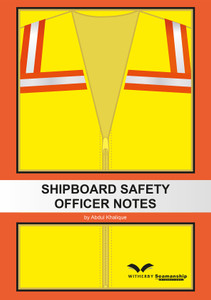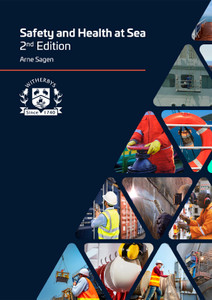
These guidelines assist Administrations, shipowners and seafarers develop shipboard working arrangements and records of seafarers’ hours of work or hours of rest as required by the Seafarers’ Hours of Work and the Manning of Ships Convention, 1996. This publication also takes into account the provisions on establishment of rest periods for watchkeeping personnel contained in the International Convention on Standards of Training, Certification and Watchkeeping for Seafarers, 1978, as amended.
These guidelines were developed by a joint working group of the International Labour Organization and the IMO. They provide a standardised table showing shipboard working arrangements, a standard format for records of seafarers’ daily hours of work and rest and guidelines for monitoring compliance.
Foreword
In 1996, the Maritime Session of the International Labour Conference adopted a resolution requesting the International Labour Organization (ILO) to develop guidelines and standardized formats relating to shipboard working arrangements and hours of work and rest of seafarers, as referred to in articles 5 and 8 of the Seafarers’ Hours of Work and the Manning of Ships Convention (Convention No. 180).
The International Convention on Standards of Training, Certification and Watchkeeping for Seafarers (STCW), 1978, as amended in 1995, also contains provisions on hours of rest and the posting of watch schedules, so a joint International Maritime Organization (IMO)/ILO working group was established following consultations between the Secretary-General of IMO and the Director-General of ILO.
The working group was given the task of producing guidelines and standard formats so that those affected – the shipping industry and seafarers – might benefit from addressing the common issues in a common way, avoiding unnecessary duplication.
The group was asked to prepare:
- a standardized table showing shipboard working arrangements;
- a standard format for records of seafarers’ daily hours of work and rest; and
- guidelines for monitoring compliance.
At its 69th session (May 1998), IMO’s Maritime Safety Committee approved, and at its 273rd session (November 1998), the Governing Body of the International Labour Office took note of the report of the joint working group and authorized the Director-General of ILO to consult with the Secretary-General of IMO regarding the joint publication of this document.
The Guidelines for the Development of Tables of Seafarers’ Shipboard Working Arrangements and Formats of Records of Seafarers’ Hours of Work or Hours of Rest presented here are the result of the group’s work. IMO and ILO are pleased to issue this joint publication, which is designed to assist Administrations, shipowners and seafarers in meeting their obligations under the IMO and ILO conventions.
Guidelines for the Development of Tables of Seafarers’ Shipboard Working Arrangements and Formats of Records of Seafarers’ Hours of Work or Hours of Rest
Appendix 1 – Seafarers’ Hours of Work and the Manning of Ships Convention, 1996 (no. 180)
Appendix 2 – Relevant requirements of the International Convention on Standards of Training, Certification and Watchkeeping for Seafarers, 1978, as amended in 1995, and of the STCW Code
Appendix 3 – Model format for a table of shipboard working arrangements
Appendix 4 – Model format for records of hours of work or hours of rest of seafarers
A??s a specialized agency of the United Nations, IMO is the global standard-setting authority for the safety, security and environmental performance of international shipping. Its main role is to create a regulatory framework for the shipping industry that is fair and effective, universally adopted and universally implemented.
In other words, its role is to create a level playing-field so that ship operators cannot address their financial issues by simply cutting corners and compromising on safety, security and environmental performance. This approach also encourages innovation and efficiency.
Shipping is a truly international industry, and it can only operate effectively if the regulations and standards are themselves agreed, adopted and implemented on an international basis. And IMO is the forum at which this process takes place.
- Number of Pages:
- 18
- Book Height:
- 250 mm
- Book Width:
- 210 mm
- Preview:
- Yes
- ISBN:
- 9789280160956
- Binding Format:
- Paperback
- Author:
International Chamber of Shipping
- Publication Date:
- January 1999
- Published Date:
- January 1999






